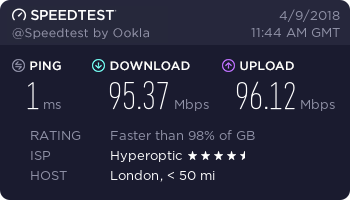silk186
[H]ard|Gawd
- Joined
- Feb 26, 2008
- Messages
- 1,628
I've been sitting on my i5 2500k for a long long time. I think it is finally time to upgrade. I almost jumped on an i5-8600K or i7-8700K but memory prices and the rumours of an 8-core i7 9700k made me reconsider.
Intel: i7-9700k & z390
AMD: Ryzen 7 2800X here and here & X470 here and here
I was debating between the i5-9600k and i7-9700k assuming both are 8 core. I'm a writer and editor with tons of tabs and apps open and loads of other software and game at night. Now I'm starting to consider between Intel and AMD. I've seen more discussion of tech news sites than I am on [H] which is unusual.
What are predictions her for release dates? Will AMD get close to Intel in single threaded performance?
Intel: i7-9700k & z390
AMD: Ryzen 7 2800X here and here & X470 here and here
I was debating between the i5-9600k and i7-9700k assuming both are 8 core. I'm a writer and editor with tons of tabs and apps open and loads of other software and game at night. Now I'm starting to consider between Intel and AMD. I've seen more discussion of tech news sites than I am on [H] which is unusual.
What are predictions her for release dates? Will AMD get close to Intel in single threaded performance?
![[H]ard|Forum](/styles/hardforum/xenforo/logo_dark.png)
